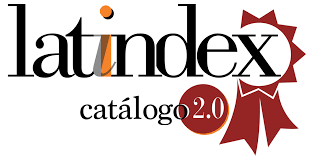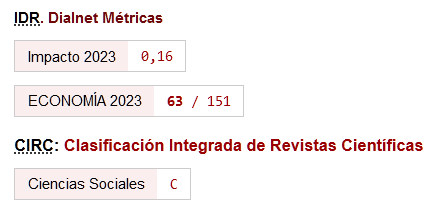Artificial Economics: A Critical Review
DOI:
https://doi.org/10.46661/revmetodoscuanteconempresa.2338Keywords:
economía artificial, economía computacional, economía computacional basada en agentes, artificial economics, computational economics, agent-based computational economicsAbstract
Artificial Economics is one of the fastest growing approaches to analyse complex socio-economic systems. In this paper we present our views on the distinguishing features of Artificial Economics and on its relation with Theoretical Economics — the field that in our opinion lies closest to Artificial Economics. In this context, we discuss various reasons why conducting research on Artificial Economics may be worthwhile, and provide general guidelines on how to go about it. Our view is that Artificial Economics and Theoretical Economics share the same goals, do not differ conceptually as much as it is sometimes perceived, and their approaches are certainly complementary.
Downloads
References
Amblard, F. (2010) "Construire des sociétés artificielles pour comprendre les phénomènes sociaux réels," Nouvelles perspectives en sciences sociales: Revue internationale de systémique complexe et d'études relationnelles, 5(2), 69–77.
Amman, H. M., Kendrick, D. A. and Rust, J. (1996) Handbook of Computational Economics, Vol. 1. Amsterdam: Elsevier.
Axelrod, R. (1984) The Evolution of Cooperation, New York: Basic Books.
Axelrod, R. (1997) "Advancing the Art of Simulation in the Social Sciences," in R. Conte, R. Hegselmann and P. Terna (eds.), Simulating Social Phenomena. Springer, pp. 21–40.
Axtell, R. (2000) "Why agents?: On the varied motivations for agent computing in the social sciences," Proceedings of the Workshop on Agent Simulation: Applications, Models and Tools: 3-24. Argonne National Laboratory, IL.
Batten, D. F. (2000) Discovering Artificial Economics: How Agents Learn and Economies Evolve. Boulder, Colorado: Westview Press.
Binmore, K. (1998) "Robert Axelrod - The Complexity of Cooperation (Book review)", Journal of Artificial Societies and Social Simulation, 1(1). Retrieved from http://jasss.soc.surrey.ac.uk/1/1/review1.html
Binmore, K. (2011) Rational Decisions. Princeton University Press.
Chen, S.-H., Jain, L. and Tai, C.-C. (2006) Computational Economics: A Perspective from Computational Intelligence. Idea Group Publishing.
Cioffi-Revilla, C. (2010) "A methodology for complex social simulations", Journal of Artificial Societies and Social Simulation, 13(1), 7. Retrieved from http://jasss.soc.surrey.ac.uk/13/1/7.html
Colman, A. M. (1995) Game Theory and its Applications: In the Social and Biological Sciences, 2nd edition. Routledge.
Czerwiński, Z. (1958) "On the relation of statistical inference to traditional induction and deduction", Studia Logica, 7(1), 243–264.
Edmonds, B. (2007) "The practical modelling of context-dependent causal processes – A recasting of Robert Rosen’s thought", Chemistry & Biodiversity, 4(10), 2386–2395.
Edmonds, B. (2011) "Context in social simulation: why it can’t be wished away", Computational and Mathematical Organization Theory, 18(1), 5–21.
Epstein, J.M. (2006) "Remarks on the Foundations of Agent-Based Generative Social Science," in L. Tesfatsion and K.L. Judd (eds.), Handbook of Computational Economics, Vol. 2, pp. 1585–1604.
Epstein, J.M. (2006) Generative Social Science: Studies in Agent-Based Computational Modeling, STU - Stud. Princeton University Press.
Galán, J.M., Izquierdo, L.R., Izquierdo, S.S., Santos, J.I., Olmo, R. del, López-Paredes, A. and Edmonds, B. (2009) "Errors and Artefacts in Agent-Based Modelling", Journal of Artificial Societies and Social Simulation, 12(1), 1. Retrieved from http://jasss.soc.surrey.ac.uk/12/1/1.html
Gintis, H. (2014) The Bounds of Reason: Game Theory and the Unification of the Behavioral Sciences Revised edition. Princeton University Press.
Gotts, N.M., Polhill, J.G. and Law, A.N. R. (2003). "Agent-Based Simulation in the Study of Social Dilemmas", Artificial Intelligence Review, 19(1), 3–92.
Hassan, S., Arroyo, J., Galán, J.M., Antunes, L. and Pavón, J. (2013) "Asking the Oracle: Introducing Forecasting Principles into Agent-Based Modelling", Journal of Artificial Societies and Social Simulation, 16(3), 13. Retrieved from http://jasss.soc.surrey.ac.uk/16/3/13.html
Izquierdo, L.R., Izquierdo, S.S., Galán, J.M. and Santos, J.I. (2009) "Techniques to Understand Computer Simulations: Markov Chain Analysis", Journal of Artificial Societies and Social Simulation, 12(1), 6. Retrieved from http://jasss.soc.surrey.ac.uk/12/1/6.html
Izquierdo, L.R., Izquierdo, S.S., Galán, J.M. and Santos, J.I. (2013) "Combining Mathematical and Simulation Approaches to Understand the Dynamics of Computer Models," in B. Edmonds and R. Meyer (eds.), Simulating Social Complexity. Berlin, Heidelberg: Springer, pp. 235–271.
Izquierdo, S.S. and Izquierdo, L.R. (2013) "Stochastic Approximation to Understand Simple Simulation Models", Journal of Statistical Physics, 151(1-2), 254–276.
Izquierdo, L.R. and Polhill, J.G. (2006) "Is Your Model Susceptible to Floating-Point Errors?", Journal of Artificial Societies and Social Simulation, 9(4), 4. Retrieved from http://jasss.soc.surrey.ac.uk/9/4/4.html
Jackson, M.O. (2010) Social and Economic Networks. Princeton University Press.
Kendrick, D.A. and Amman, H.M. (1999) "Programming Languages in Economics", Computational Economics, 14(1/2), 151–181.
Keynes, J.M. (1936) The General Theory of Employment, Interest and Money. London: Macmillan.
Kulkarni, V.G. (2009) Modeling and Analysis of Stochastic Systems, 2nd edition. Chapman & Hall/CRC Texts in Statistical Science.
Kushner, H.J. and Yin, G.G. (1997) Stochastic Approximation Algorithms and Applications. New York, NY: Springer.
Leombruni, R. and Richiardi, M. (2005) "Why are economists sceptical about agent-based simulations?", Physica A: Statistical Mechanics and its Applications, 355(1), 103–109.
Mendelson, E. (1997) Introduction to Mathematical Logic, 4th edition. CRC Press.
Newman, M. (2010) Networks. An Introduction. Oxford University Press.
Polhill, J.G., Izquierdo, L.R. and Gotts, N.M. (2006) "What every agent-based modeller should know about floating point arithmetic", Environmental Modelling & Software, 21(3), 283–309.
Putnam, H. (1975) "What is mathematical truth?", Historia Mathematica, 2(4), 529–533.
Richiardi, M. G. (2012) "Agent-based computational economics: a short introduction", The Knowledge Engineering Review, 27(02), 137–149.
Richiardi, M., Leombruni, R., Saam, N. and Sonnessa, M. (2006) "A Common Protocol for Agent-Based Social Simulation", Journal of Artificial Societies and Social Simulation, 9(1), 15. Retrieved from http://jasss.soc.surrey.ac.uk/9/1/15.html
Rosen, R. (2012) Anticipatory Systems: Philosophical, Mathematical, and Methodological Foundations, 2nd edition. New York, NY: Springer.
Sakoda, J.M. (1971) "The checkerboard model of social interaction," The Journal of Mathematical Sociology, 1(1), 119–132.
Sandholm, W.H. (2010) Population Games and Evolutionary Dynamics. The MIT Press.
Schelling, T.C. (1971) "Dynamic models of segregation", The Journal of Mathematical Sociology, 1(2), 143–186.
Schmedders, K. and Judd, K.L. (2014) Handbook of Computational Economics, Vol. 3. Amsterdam: North Holland.
Squazzoni, F. (2010) "The impact of agent-based models in the social sciences after 15 years of incursions", History of Economic Ideas, 18(2), 197–233.
Tesfatsion, L. (2002) "Agent-based computational economics: growing economies from the bottom up", Artificial Life, 8(1), 55–82.
Tesfatsion, L. (2003) "Agent-based computational economics: modeling economies as complex adaptive systems", Information Sciences, 149(4), 262–268.
Tesfatsion, L. (2006) "Agent-Based Computational Economics: A Constructive Approach to Economic Theory", in L. Tesfatsion and K.L. Judd (eds.), Handbook of Computational Economics, Vol. 2, pp. 831–880.
Tesfatsion, L. and Judd, K.L. (2006) Handbook of Computational Economics, Vol. 2: Agent-Based Computational Economics. Amsterdam: Elsevier.
Troitzsch, K.G. (2009) "Not All Explanations Predict Satisfactorily, and Not All Good Predictions Explain", Journal of Artificial Societies and Social Simulation, 12(1), 10. Retrieved from http://jasss.soc.surrey.ac.uk/12/1/10.html
Vega-Redondo, F. (2003) Economics and the Theory of Games. Cambridge University Press.
Weibull, J.W. (1995) Evolutionary Game Theory. The MIT Press.
Downloads
Published
How to Cite
Issue
Section
License
Copyright (c) 2016 Journal of Quantitative Methods for Economics and Business Administration

This work is licensed under a Creative Commons Attribution-ShareAlike 4.0 International License.
Submission of manuscripts implies that the work described has not been published before (except in the form of an abstract or as part of thesis), that it is not under consideration for publication elsewhere and that, in case of acceptance, the authors agree to automatic transfer of the copyright to the Journal for its publication and dissemination. Authors retain the authors' right to use and share the article according to a personal or instutional use or scholarly sharing purposes; in addition, they retain patent, trademark and other intellectual property rights (including research data).
All the articles are published in the Journal under the Creative Commons license CC-BY-SA (Attribution-ShareAlike). It is allowed a commercial use of the work (always including the author attribution) and other derivative works, which must be released under the same license as the original work.
Up to Volume 21, this Journal has been licensing the articles under the Creative Commons license CC-BY-SA 3.0 ES. Starting from Volume 22, the Creative Commons license CC-BY-SA 4.0 is used.










